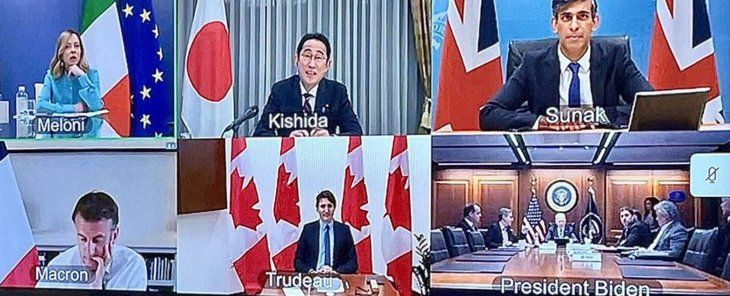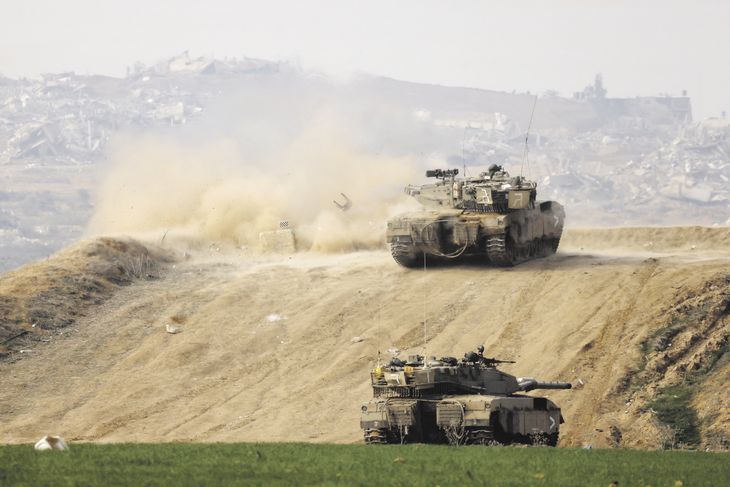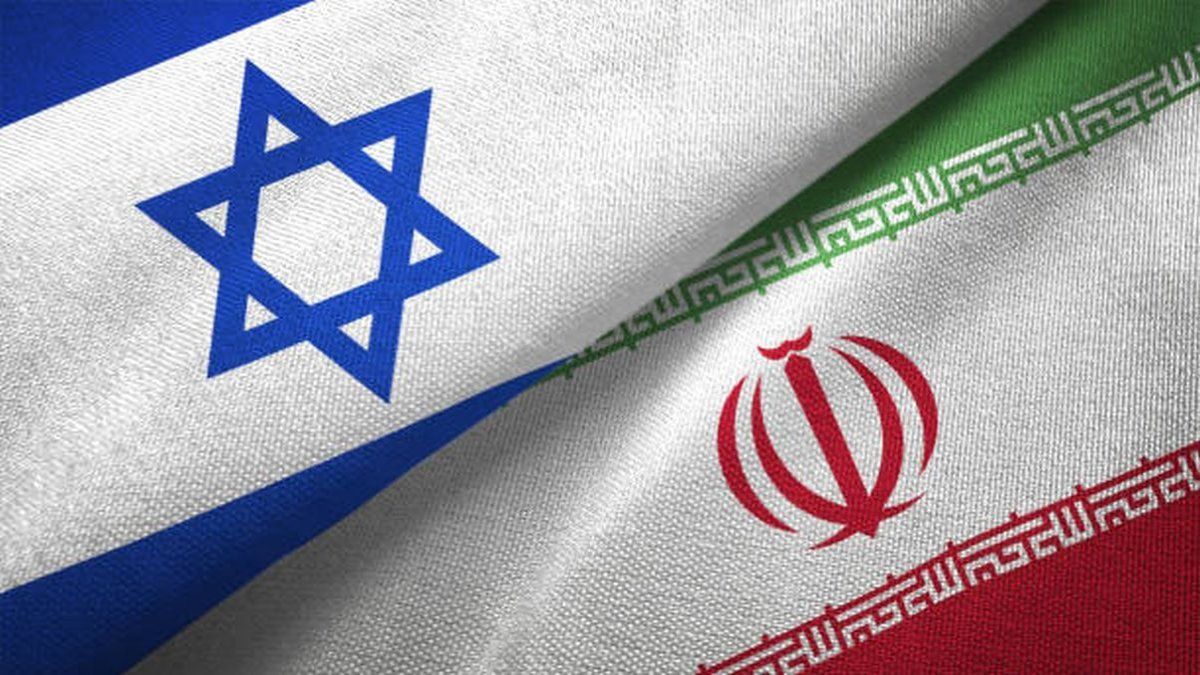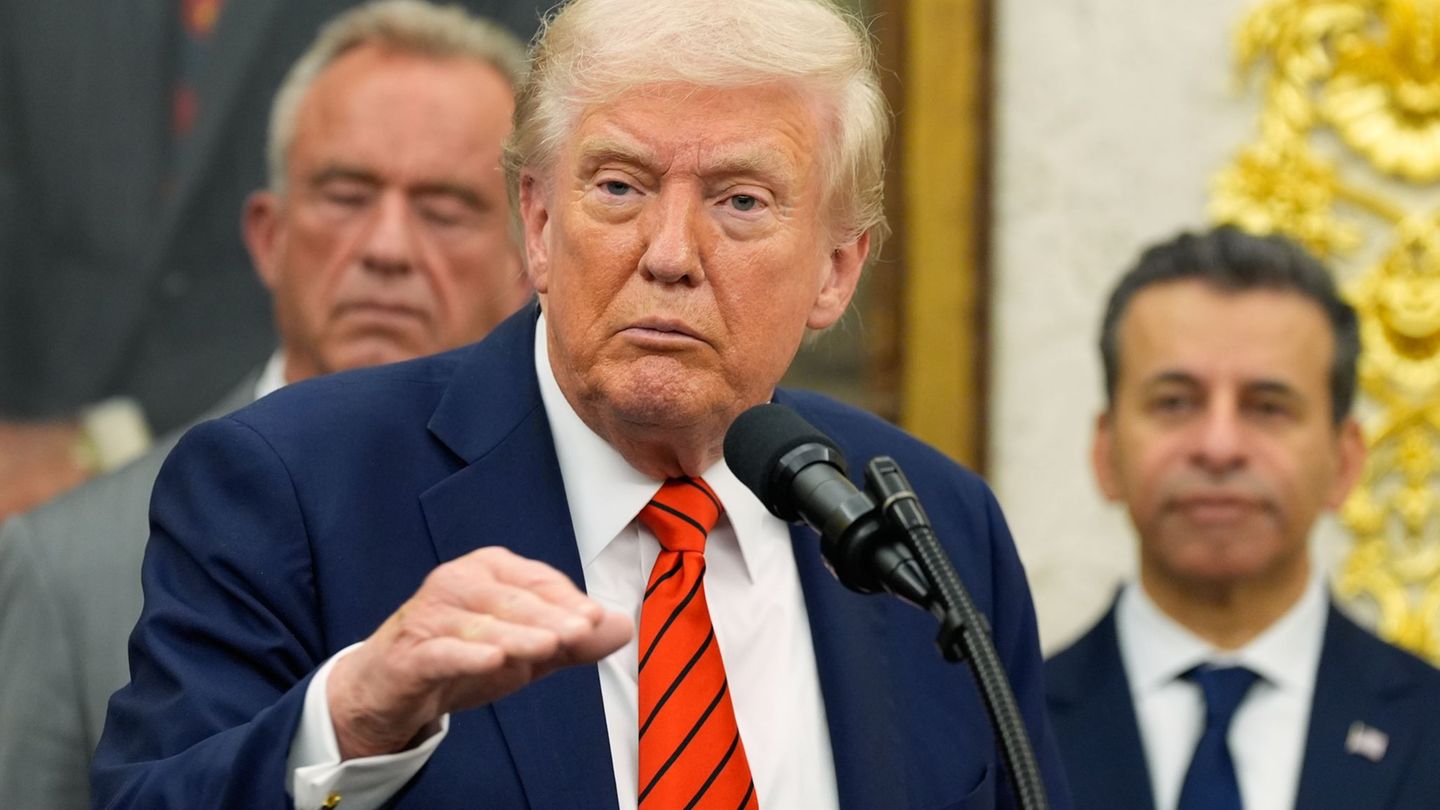israel iran war 4.jpg
Why Iran bombed Israel: the impact on the Middle East
Iran’s attack comes in response to the attack carried out by Israel against the Iranian consulate in Damascus (Syria) on April 1, which killed several commanders of the Iranian Revolutionary Guard. Among the dead was Mohamed Reza Zahedi, general responsible for coordinating operations with Hezbollah, the Lebanese Shiite militia. Iran warned that this attack would not go unpunished and that they were forced to respond to Israeli aggression.
The Iranian attack represents a breakdown of the balance that existed between the two regional powers. Until now, both Iran and Israel avoided attacking each other directly, opting for Iranian targets in third countries such as Syria, Lebanon or Iraq, in the case of Israel, or operating through proxies, in the case of Iran. However, a direct attack from one State to another represents an escalation between the two countries.
g7 emergency meeting iran israel 2.jpg

G7 emergency meeting today.
Despite the severity of the attack, Iran has measured the size of its response to avoid an escalation. During the previous days he warned that this was going to happen “soon.” In addition, he had phone calls with different world leaders to warn them.
Since Israel intervened in Gaza after the Hamas attacks on October 7has increased its attacks against Iranian targets in Syria, but until the attack on its embassy, Iran has avoided expanding the conflict. He has now sent a letter to the UN Security Council reiterating that he does not want a further escalation.
Iran-Israel: a relationship that went from strategic alliance to being bitter enemies
Iran, who was an ally of Israel under the shah’s regime, made a 180-degree turn after the islamic revolution of 1979, and became the great regional enemy of the Hebrew State, which led to the recent drone attack.
However, the bilateral relationship that today has the markets in suspense and puts pressure on the price of Petroleum It has several milestones in recent decades.
The first, two years after the creation of the State of Israel, Iran In 1950 it became the second Muslim country, after Türkiye, in recognizing the new country. Iran is then home to the largest Jewish community in Middle East.
Oil price crude barrel brent.jpg

The price of oil, on par with the conflict in the Middle East.
Israel At that time, it had an important diplomatic mission in Iran and imported 40% of its oil needs from that country in exchange for weapons, technology and agricultural products.
Second, the collaboration is so close that the fearsome Iranian political police, the Savak, It was created in 1957 with the help of the INC American and after Mossad Israeli.
Iran’s attack on Israel: the three possible scenarios
Waiting for the response from Israel, there are three scenarios that are gaining ground at this time. It all depends on the level of aggressiveness with which the government of Benjamin Netanyahu decide to act. From there, it will be seen if the conflict escalates or moderates.
The first scenario
Israel can opt for de-escalation and respond with some type of attack against pro-Iranian armed groups in Syria, Iraq or Lebanon. If so, the situation is likely to calm down.
Neither side is interested in scaling. For its part, Iran has no capacity or interest in directly confronting Israel, and the Israelis prefer to avoid fighting on several fronts at once. The international community, and especially USAthey are pressuring Netanyahu so that it does not escalate.
INTER – ISRAEL-PALESTI_opt.jpeg

Direct Israeli attack: one of the possible scenarios.
The potential loser in this scenario would be precisely the Israeli prime minister, sunk in the polls, besieged by international and street pressure in Israel and with a fragile coalition government.
The Iranian attack increases the pressure on him: many in his country blame him for the escalation with the Iranians. But Netanyahu knows that it will be able to retain power as long as the conflict remains open, whether against Hamas or against Iran.
Second scenario
This scenario is added to the first mentioned above, where Israel, in response, continues its operations against Hamas in the south of the Gaza Strip. Additionally, you can choose to attack Hezbollah in Lebanon. As has happened on other occasions, this may lead to direct military intervention by Israeli militias to create a security zone.
After the Iranian attack, Israel has more international support, which may lead it to expand its operation in Gaza. In any case, escalation here would be limited and would not directly involve Iran.
Third scenario
It is the scene of maximum escalation and violence. Israel could attack Iran directly. The images of the missiles flying over Jerusalem are too shocking for the Netanyahu Government not to act.
Along these lines, the Israeli response with a direct attack on Iranian soil would, in turn, generate two scenarios: if the response is forceful, it could generate an escalation; On the contrary, if the response is limited to a show of force to comply with Israeli public opinion, de-escalation remains possible.
Here, upping the ante would lead to a spiral that would involve other countries and actors in the region, under the gaze of the United States and Russiawho observe how their interests are disputed there.
In this scenario, it is likely that Iran will mobilize its network of militias and armed groupsas Hezbollah in Lebanon or the Houthis in Yemen. If so, it is likely that The United States gets involved and supports Israel. Other countries such as the United Kingdom or, perhaps, Saudi Arabia would also do it in a hidden way.
Source: Ambito




